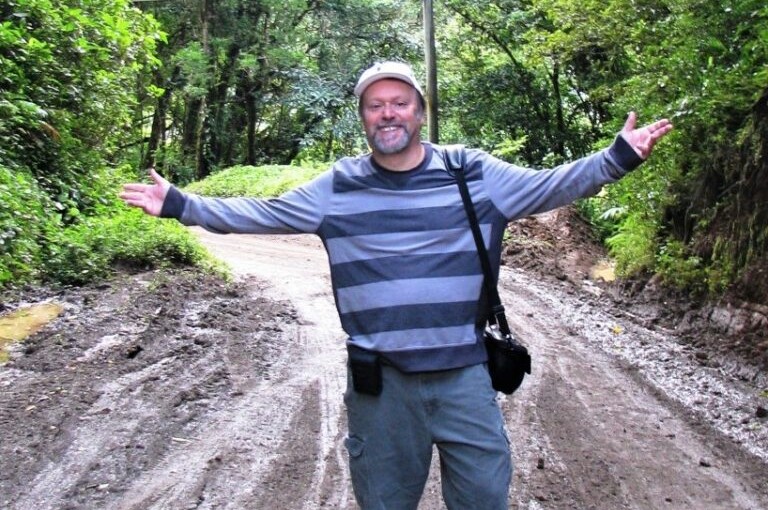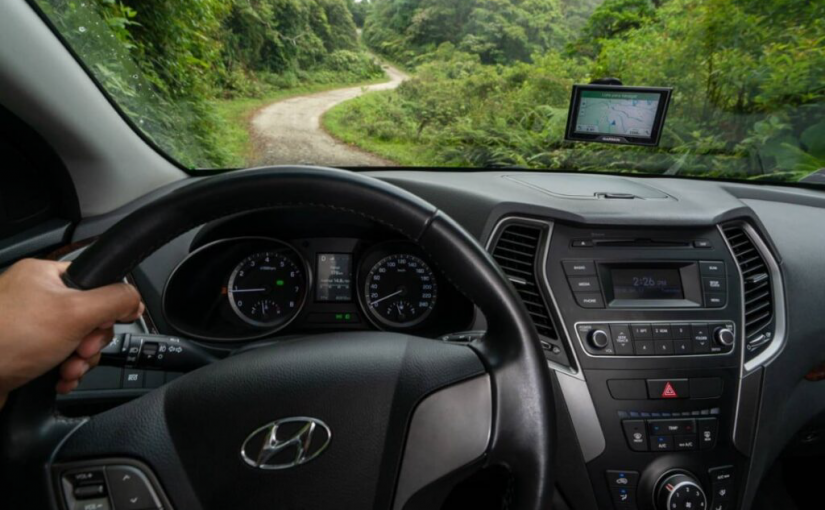These are the helpful hints that I share with all of my clients. It is extremely long. You may want to just print it out!
PASSPORT
You must have one, and it cannot expire within 30 days after your arrival. This is very important. This is required by the Costa Rican government, and is non negotiable. Otherwise, they will send you home on the next flight. They are very serious about this, so check your passport!
Now scan the first page with your picture and the other important info. Now send the file via Email to yourself and a friend who is not traveling. If you lose your passport, a good copy will make things a heck of a lot easier at the embassy. Make a photocopy while you are at it, and carry this day to day in Costa Rica. You can leave the original in your room safe. Although chances are slight that you will ever be asked to produce it, the copy works just fine. You are supposed to also have a copy of the page from when you entered the country too. But unless you are under arrest, this copy should be good enough.
ENTERING THE COUNTRY
When you arrive, you will go through immigration first and then customs. All pretty routine stuff. There are free luggage carts in the baggage claim area, but these can’t be taken outside the building. They are handy for going through customs. Unless you look like an international arms smuggler or drug addled loser, you will find customs simple. You will be asked to place all of your luggage on a conveyor belt at the x-ray machines. They only open your luggage if they see something suspicious on the x-ray. Once you exit the building, you have to surrender the cart. But there are guys there to assist if you need it. Just stay with them. I always get a little nervous when someone grabs my bag and takes off.
Something fun about this airport is that they have a duty free shop in baggage claim. You can buy wine and liquor to bring into the country. Imported liquor is expensive in Costa Rica. So if you can’t go the week without Johnny Walker, this is a good stop. The wine prices are good too. We usually buy a couple of bottles for our room or to give as gifts to friends. The shop is located to your left as soon as you arrive downstairs in baggage claim.
Do not exchange money at the official looking currency exchange in baggage claim! See below.
SECURITY
Violent crime against tourists is almost non existent. Unless of course, you are looking for trouble!
But petty theft is a real problem. So it is important that you keep an eye on your stuff. Do no leave luggage in an unattended vehicle, or anywhere else. Keep an eye on your belongings at the beach too. Use the security box in your room.
99.9% of the locals you meet will be very friendly, honest, polite, and willing to bend over backwards to assist you in every way. Everyone is so nice, it is easy to relax and forget the rules. Don’t let that happen. When you relax, that is when that tiny part of the population is looking for their opportunity. My best advice is to treat your belongings as if you were visiting a large US city. Practice the same due diligence, and you won’t have a problem.
DEALING WITH THE TICOS (the locals)
It is almost a little embarrassing to have to mention this. But there are some cultural differences. Latin folks tend to treat each other with a little more kindness than we sometimes do here in the States. Even though we mean no offense, our rushing around and efficient manner sometimes comes off as rudeness.
The waiters will treat you very well, but there is a different philosophy in play here. No one will fawn over you, even in an expensive restaurant. But they will treat you like an honored guest in their home. Play along, and be a great guest. You will be amazed at the warm treatment you will receive. Be demanding, and suddenly the service is horrible.
The pace here is slower. It isn’t laziness, it is just relaxed. We call it “Tico time”. So if your food takes a little while, don’t stress. Just order another cerveza. Also, be aware that you will never get a restaurant check without asking for it. Ticos consider it rude to bring a check too early. To them, it is the same as telling you to leave. Maybe you wanted another cup of coffee or another cerveza? Many folks mistake this as slow service or laziness. Actually, they are being polite.
It is best to go back to what our mothers taught us. Say hello (Hola) when entering a business establishment. A simple “Please” (Por Favor, or even just Porfa), goes a long way. Thank (Gracias) everyone for everything.
One last thing. If things are not going well, keep your temper. Ticos tend to be non confrontational, and polite. Even when they are boiling inside. Yelling at a waiter or hotel clerk is extremely bad manners (even if you are in the right). You may not be aware of it, but this loss of control is extremely embarrassing for everyone. Especially for the one causing the commotion.
MONEY
Again, do not exchange money at the official looking currency exchange in baggage claim! The commission they charge is an outrageous rip off. Period.
Your US money spends well here. Just bring small bills, and make sure they are in good condition. The one hundred dollar bill is the most counterfeited in the world, and is always viewed with suspicion. Don’t bring anything larger than a twenty.
You will probably want to use local currency. It is just easier. Your hotel can usually change a small amount of money for you. But they are not a bank, so they don’t keep a lot of cash on hand. You can also get money from an ATM. They usually give the best exchange rate. Most big US networks (Pulse, Cirrus, Maestro, etc.) are in use here. But not at every bank. So when you find one that works, make note of the name for future reference.
Stash some US money for the last day of your trip. Costa Rican colons are hard to exchange back home, and you will get murdered on the exchange rate. You want to spend all your colons, and live on US money at the end of your stay.
If you are going to be using a credit card, it is a good idea to let your provider know. They will often turn a card off when they start seeing a bunch of foreign charges. A quick call today can save a hassle and expensive international call later.
STAYING HEALTHY
You can eat the food and drink the water just about everywhere. Bottled water is widely available. I drink it out of convenience, but not out of necessity. So food and drink are not a concern. I find that the biggest problems my guests encounter are sun poisoning and digestive problems.
You are only slightly above the equator here. The sun is a lot more intense than it seems. If you forget your hat and don’t wear sunscreen, you are asking for trouble. Sun poisoning will lay you out for a full day or longer. It is just like the flu. Sniffles, nausea, diarrhea, fatigue. Take precautions, and you will be fine. I can’t stress the importance of this enough.
You should bring some Imodium or other anti-diarrhea medication. Sometimes just a change in diet will cause this kind of problem. The good news is that it probably is not a problem caused by bacteria. If you are affected, lay off the fried food. They use palm oil a lot, and it is hard to digest if you are not used to it.
There is a very slight incidence of tropical diseases. But they are not nearly as common here as in other parts of the third world. Most of the things that can affect you are mosquito borne. Just use your repellent, especially in the early morning and at dusk. Pay close attention to your ankles. In seventeen years, I don’t think that any of our clients have come home sick. But take your precautions. It is always better to be safe than sorry.
If you are going to be drinking alcohol at the hot springs, make sure you hydrate! And no, a frozen margarita doesn’t count. Hot springs are great fun, but extremely dehydrating. Mix this factor with alcohol, and you can see the party ending early. An occasional bottle of water is the smart thing to do.
TIPPING
All restaurant checks have a 10% tip, and some tax added. By law, they have to give you a bill. This 10% is a starting point. If your waiter has been good, then add another 10%.
If you are being transferred a long distance, make sure you take care of the driver / guide. Tips are an important part of their income. If you are just a couple people or a family in a small van, figure $20.00 is good. If you are part of a large group, figure $5.00 per person, per day.
The drivers doing local transfers in San Jose should get a couple bucks, but taxi drivers are usually not tipped. There are usually some guys that will help with your luggage at the airport. Tip like you would in the US. Tip anyone that helps with your luggage at the hotel. Figure a buck a bag for the luggage assistance.
Don’t forget the chamber maids, figure a buck a day, unless you are really messy! Some hotels leave an envelope in the room. Others have a box in the lobby for staff tips. A buck or two left on the table after the free breakfast buffet is always appreciated.
KEEPING IN TOUCH
The best way is by email. Internet cafes are pretty common, although not all of them offer a high speed connection. Most hotels now offer some form of Internet access for guests. If you must call home, I don’t recommend that you use your US based calling card. They usually are your worst deal, and it can get expensive quickly. If you must call home, purchase an international phone card from a pharmacy or large grocery store. These are sold in US denominations ($5, $10, $20), and are your best deal at about fifty cents per minute.
LEAVING THE COUNTRY
All carriers want you to check in two and a half to three hours in advance. You have to comply. This is a small airport. If two or more big jets are leaving around the same time, the security lines get long. If there is an elevated threat level in the US, they search every bag by hand. You can see how this can slow things down.
You have to pay your exit tax before you get in line at the ticket counter. There are two places to do this. They are located in the corners of the terminal, across from the ticket counters. The lines appear long, but they move quickly. If the line at the closest one is crazy long, then go to the other. There always seems to be next to no one there. Go figure.
I hope that you find this information useful! Enjoy your stay, you are going to a very special place.

